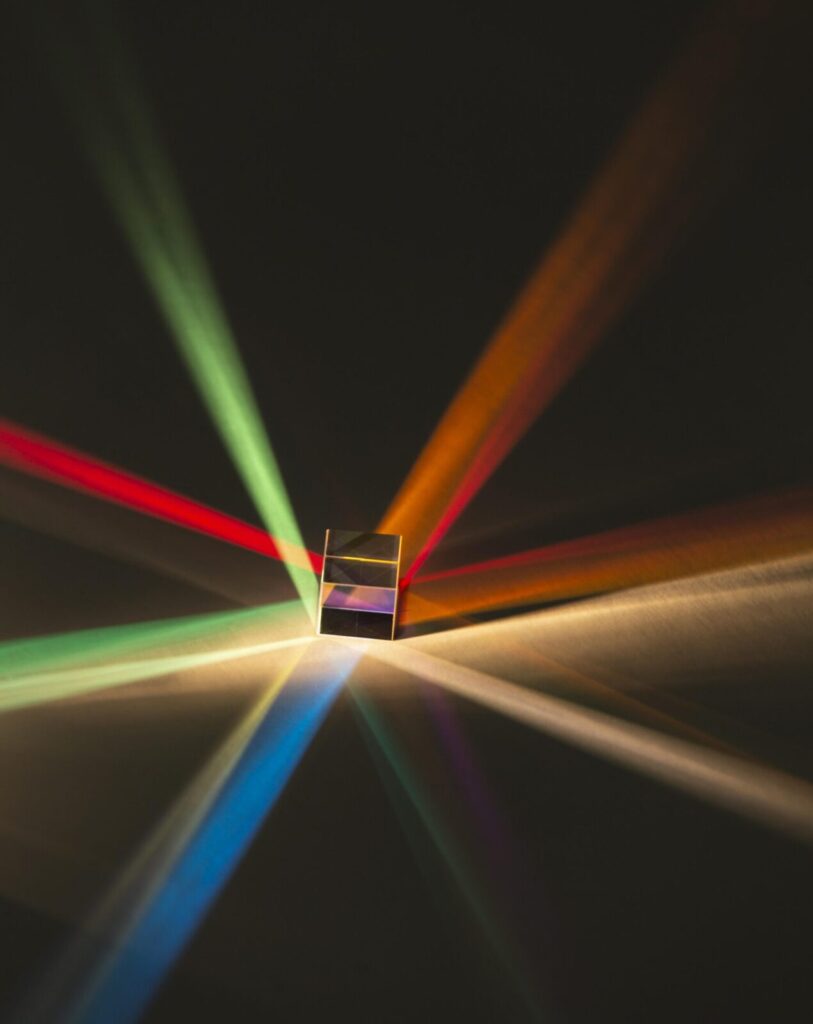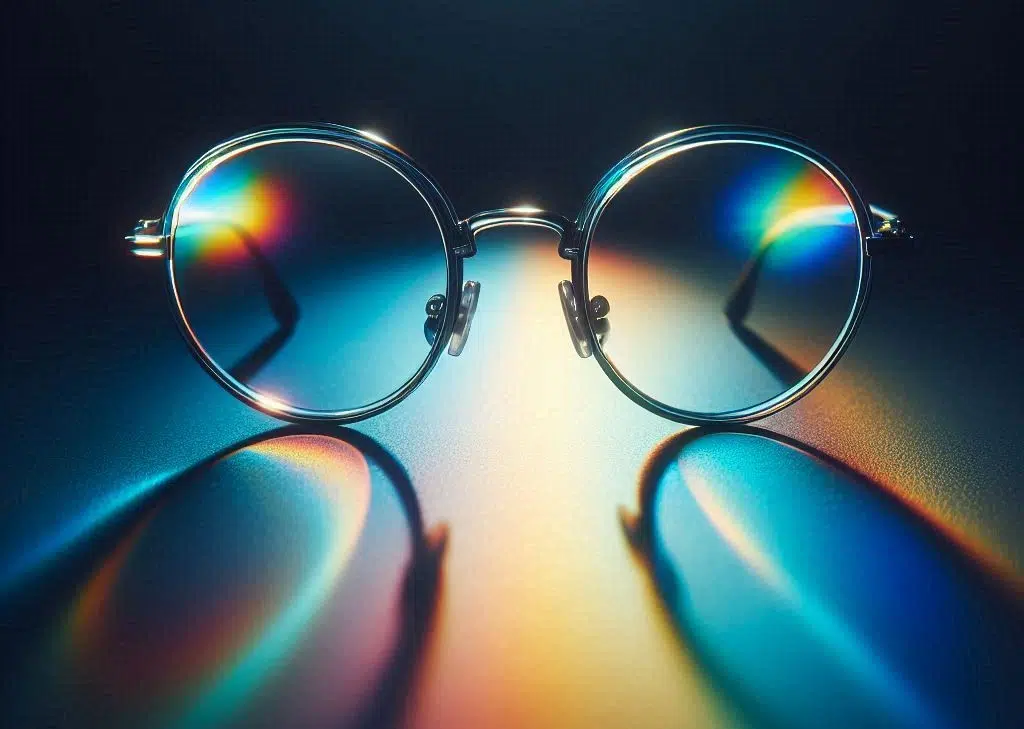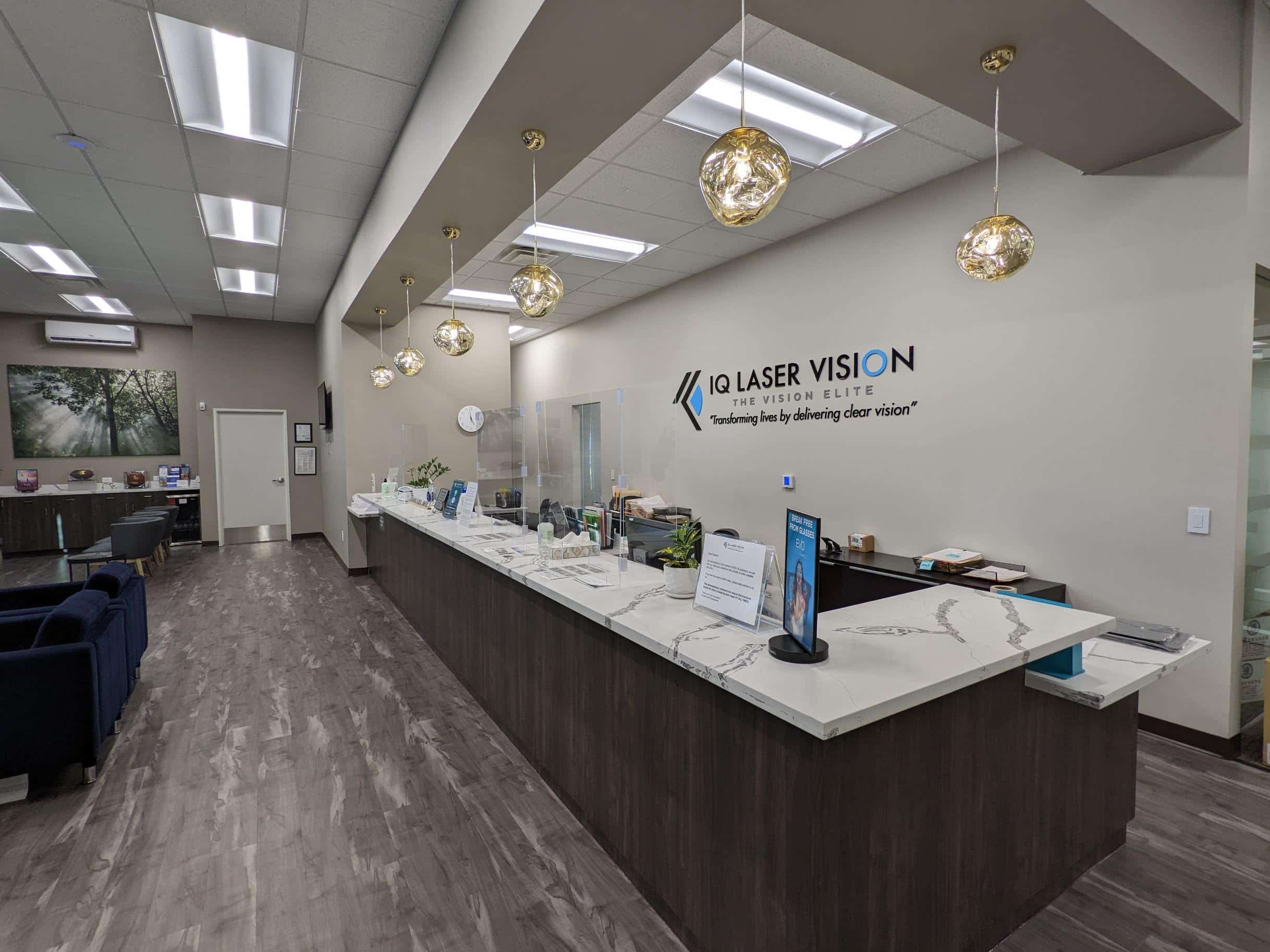The truth about blue light glasses. In the contemporary world, we’re perpetually tethered to digital screens. From smartphones and laptops to tablets and televisions, these ever-present devices emit blue light, a specific band of light within the visible spectrum. While blue light serves a vital purpose in regulating our circadian rhythm, excessive exposure has been linked to a multitude of potential health concerns, particularly for our eyes.
Read on to learn the science behind blue light, explore its impact on our well-being, and how the evidence of effectiveness of blue light glasses as a protective measure lacks.
Understanding The Spectral Breakdown

Light is an electromagnetic wave encompassing a spectrum of colors, each with a distinct wavelength. Blue light occupies a short-wavelength range, imbuing it with high energy. Natural sunlight is the primary source of blue light exposure. However, artificial sources like digital screens emit significant amounts of blue light as well.
The human eye is remarkably adept at absorbing blue light. The concern lies in the sheer volume of blue light exposure we receive in today’s digital environment. Prolonged blue light bombardment may lead to a cascade of ocular issues, including:
- Eyestrain and Fatigue: Blue light exposure can trigger eye strain, characterized by burning, stinging, or itchy sensations. It can also induce fatigue, making it challenging to focus on visual tasks for extended periods.
- Dry Eyes: Blue light exposure has been implicated in reducing tear production, leading to dry eye symptoms like irritation, discomfort, and blurred vision.
- Disrupted Sleep Patterns: Blue light suppresses melatonin, a hormone responsible for regulating sleep-wake cycles. Excessive blue light exposure in the evening hours can disrupt sleep quality, making it difficult to fall asleep and stay asleep.
Unveiling the Evidence: Do Blue Light Glasses Deliver?
Blue light glasses have emerged as a popular solution to combat the potential downsides of blue light exposure. These glasses come equipped with special filters that block or absorb a portion of the blue light emitted from digital devices. Proponents of blue light glasses claim they can alleviate eye strain, improve sleep quality, and even boost cognitive function.

The Truth About Blue Light Glasses: Examining the Scientific Evidence
Let’s examine the scientific evidence surrounding these claims:
Eye Strain
Several studies have yielded mixed results regarding blue light glasses and eye strain. Some studies show minimal to no significant improvement, while others suggest a potential benefit. This is particularly true for individuals who experience significant eye strain during prolonged screen time.
Sleep
Studies indicate that wearing blue light glasses in the evening, particularly two to three hours before bedtime, may improve sleep quality. The glasses may help regulate melatonin production, which can lead to easier sleep onset.
It’s important to remember that the current body of research is not conclusive. More extensive, long-term studies are needed to definitively determine the effectiveness of blue light glasses for eye strain and sleep. In the interim, prioritizing sound digital hygiene practices serves as the most effective strategy to safeguard ocular health in the face of pervasive screen time.
Beyond Blue Light Glasses: Optimizing Digital Eye Health
Here are some practical tips to promote healthy eyes in the digital age:
- The 20-20-20 rule: Every 20 minutes, look away from your screen for 20 seconds and focus on an object 20 feet away.
- Adjust screen brightness and settings: Reduce screen brightness and enable night mode features that often emit a warmer light.
- Take breaks: Give your eyes a break from screens every hour, allowing them to refocus and relax.
- Maintain good posture: Sit at an arm’s length from your screen and avoid hunching.
- Regular eye exams: Schedule regular eye exams with your ophthalmologist to monitor your eye health and address any underlying conditions.
The Truth About Blue Light Glasses: Conclusion
In the ever-evolving digital landscape, protecting our eyes from blue light exposure is a growing concern. While blue light glasses have gained popularity as a solution, the research on their effectiveness remains inconclusive. Ultimately, the key to digital wellness lies in striking a balance between embracing technological advancements and prioritizing our well-being. By being mindful of our digital habits and implementing practical strategies, we can navigate the digital world with confidence. This helps preserve our vision and maintain a healthy relationship with technology. For more information, visit WebMD’s guide on blue light..























